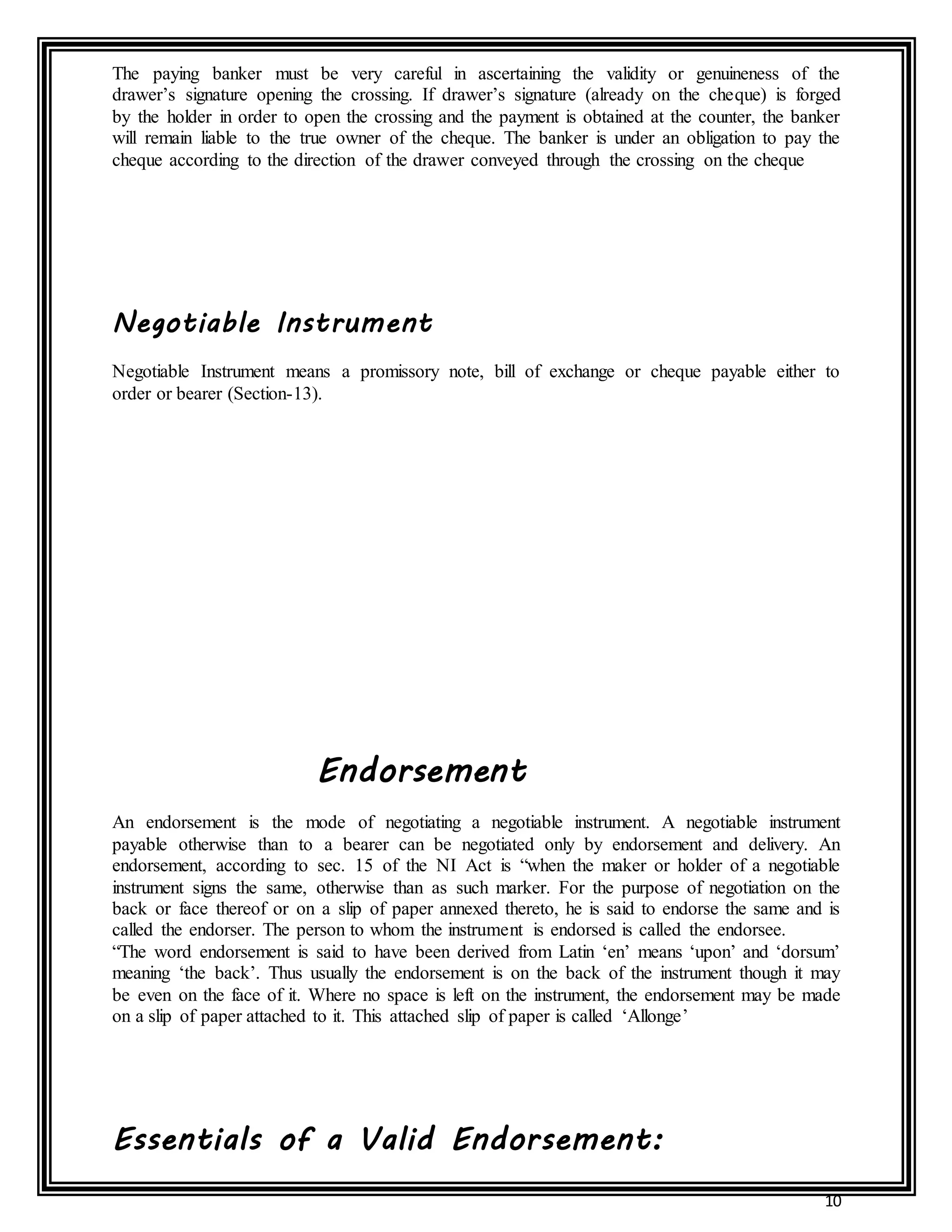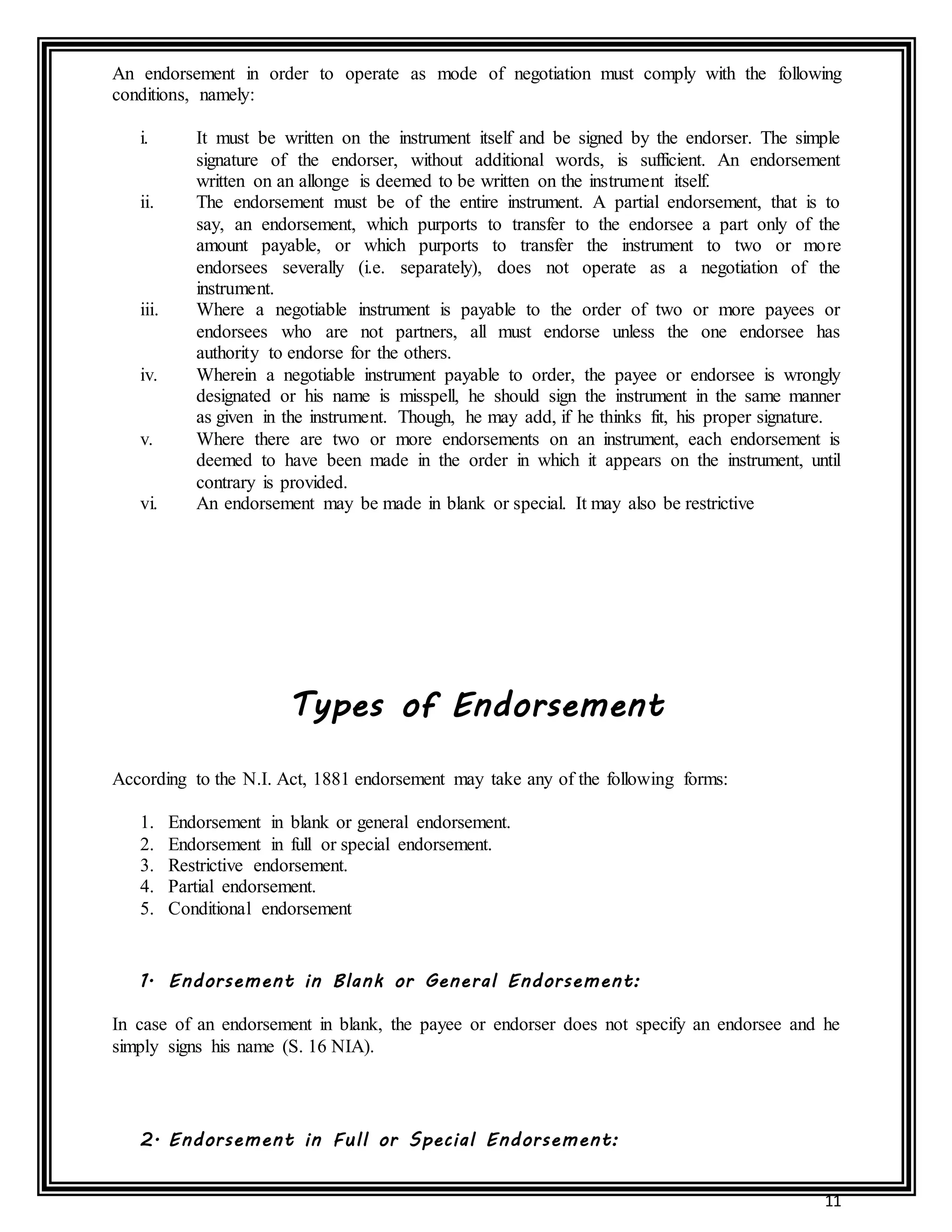This document provides information about crossing and endorsement of negotiable instruments like cheques. It defines crossing as requesting payment through a bank rather than over the counter. There are two types of crossing: general and special. General crossing involves drawing two parallel lines on the cheque, while special crossing names a specific bank. Special crossing provides more protection by only allowing payment to the named bank. An endorsement involves writing the payee's name on the back of the cheque to enable transfer of the instrument. Key points of a valid endorsement and types of endorsements are described. The effects of endorsement and usual bank endorsement forms are also mentioned.













